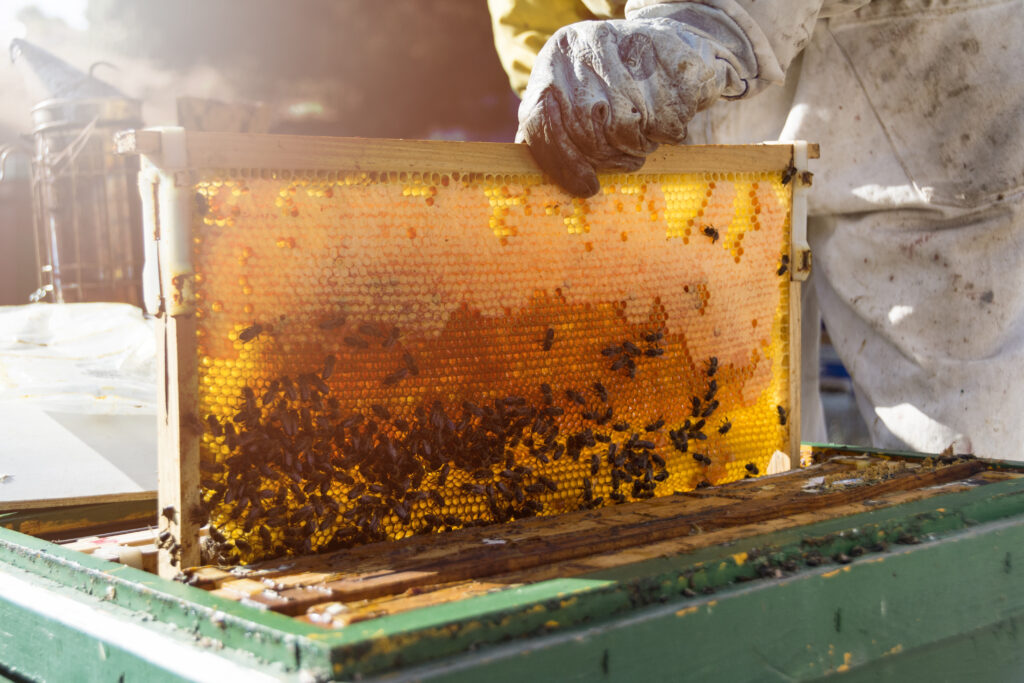
Bees are often considered small insects with an extraordinary impact on our planet, playing a vital role in safeguarding biodiversity and securing livelihoods. The art of beekeeping, or apiculture, has a long history dating back centuries and has proven invaluable in preserving both the delicate balance of ecosystems and the economic stability of communities around the world.
Imagine a world where beekeeping not only benefits the bees but also the environment. In this article, we will explore the fascinating world of eco-friendly hives and the innovative practices that are revolutionizing modern beekeeping. By combining sustainable materials and advanced design, beekeepers are fostering the well-being of these vital pollinators while also reducing their carbon footprint. Get ready to be inspired by the extraordinary efforts being made to create a harmonious balance between human activity and nature in the world of beekeeping.
Beekeeping has long been a vital practice for both honey production and the pollination of crops. However, as we become increasingly aware of the importance of sustainability and environmental conservation, it is essential to adopt eco-friendly practices in beekeeping. By creating a sustainable beekeeping environment, using renewable resources, minimizing environmental impact, promoting biodiversity, supporting local communities, harnessing technology, addressing climate change challenges, and recognizing the economic benefits of eco-friendly beekeeping, we can ensure the future health and well-being of both bees and our planet.
Creating a bee-friendly environment extends beyond the boundaries of the beehives. Beekeepers can actively contribute to pollinator-friendly landscaping by planting a diverse range of native plants and wildflowers. These plants provide a source of food for the bees and help support their overall health and vitality. By encouraging the growth of native vegetation and avoiding the use of synthetic pesticides in surrounding areas, beekeepers can enhance the ecosystem and promote the well-being of both bees and other pollinators.
In eco-friendly beekeeping, thoughtful consideration is given to the materials used in hive construction. Opting for sustainable materials, such as reclaimed or recycled wood, natural fibers, and non-toxic glues, helps reduce the industry’s reliance on non-renewable resources. By utilizing these materials, beekeepers can contribute to a circular economy and minimize the environmental impact of hive construction.
Responsible honey harvesting techniques are crucial in minimizing the environmental impact of beekeeping. Harvesting practices that prioritize the well-being of the bees, such as leaving sufficient honey stores for the continuity of colonies or using non-invasive extraction methods, ensure the long-term sustainability of the colony. By prioritizing the health and survival of the bees, beekeepers can maintain a balanced ecosystem and minimize disruptions to their natural behavior.
Minimizing the use of chemicals in beekeeping is a fundamental aspect of eco-friendly practices. By reducing the reliance on synthetic pesticides, antibiotics, and miticides, beekeepers can prevent the contamination of honey, wax, and the overall environment. Adopting alternative methods, such as essential oil treatments for varroa mite control or selective breeding for disease resistance, promotes a healthier environment for both bees and beekeepers.
Promoting biodiversity through native plant and wildflower cultivation is a key strategy in eco-friendly beekeeping. By planting a diverse range of flowering plants like sunflowers, canola, lavender, and a wide range of grasses, beekeepers can ensure that bees have access to a variety of pollen and nectar sources throughout the year. This helps support the nutritional needs of the bees and enhances their overall health and resilience. Ensuring a diverse diet for bees is essential for their overall health and well-being. Beekeepers can play a significant role in promoting bee nutrition by providing supplemental food sources during periods when natural forage is limited. This can be achieved through the use of pollen supplements or honey-water solutions. By prioritizing a diverse diet, beekeepers enhance the immune systems of their bees and contribute to their long-term survival.
Bees, with their vibrant buzzing and delicate wings, have long been celebrated as nature’s diligent workers. Beyond their role in pollination and honey production, bees contribute significantly to economic development worldwide. The art of beekeeping, practiced for centuries, has not only provided sustenance and sweetness to human lives but has also become a fundamental pillar of economies. Uniting the realms of ecology and commerce, beekeeping holds the key to sustainable growth, fostering biodiversity, supporting livelihoods, and driving innovation. As we delve into the intricacies of this enchanting craft, we unravel a world where bees are esteemed for more than just their golden nectar and realize the profound importance of beekeeping in shaping economic landscapes across the globe.
Beekeeping, often overlooked as an essential industry, plays a vital role in driving economic growth on both local and global scales. This intricate relationship between beekeeping and economics encompasses various aspects, from honey production to pollination services. By harnessing the natural abilities of bees, a multitude of economic opportunities arise, bolstering agricultural sectors, creating employment, and fostering sustainable development. Beekeeping supports biodiversity conservation and ecological balance by promoting the propagation of flowering plants through pollination. It also indirectly contributes to the process of reforestation and helps maintain vibrant ecosystems.
Let us delve into some key factors that highlight the significance of beekeeping in fostering economic growth:
- Pollination Services: Bees, as diligent pollinators, contribute significantly to the reproduction of countless fruit, vegetable, and flower crops. This pollination process enhances crop yield and quality, thus strengthening agricultural economies and fostering innovation in farming practices. Beekeepers can generate income by providing pollination services to fruit and grain producers, hence earning a living directly from bees’ services and later also harvesting products from the same hives.
- Honey Production: A delicious byproduct of beekeeping, honey has become a valuable commodity. The production, processing, and trade of honey create employment opportunities and generate revenue for both beekeepers and related industries. Additionally, honey and its derivatives find applications in various sectors, such as food, medicine, and cosmetics.
- Wax and Propolis: Beyond honey, bees also produce beeswax and propolis. Beeswax finds its way into an extensive range of products, including candles, cosmetics, and pharmaceuticals, providing economic avenues for different industries. On the other hand, propolis, with its medicinal properties, contributes to the pharmaceutical and health sectors.
- Beekeeping Equipment and Services: The growth of the beekeeping industry has nurtured the development of a wide array of specialized equipment, ranging from hives and frames to protective gear for beekeepers. Additionally, the demand for educational programs, hive maintenance services, and pollination contracts creates employment opportunities and stimulates economic growth within associated sectors.
- Job Creation: Beekeeping offers employment opportunities for communities, creating much-needed jobs. From tending to the hives to honey production and packaging, each step of the process generates employment.
- Enhanced Agricultural Practices: The pollination services provided by bees help increase crop yields, leading to improved agricultural practices. This, in turn, supports local farmers by providing them with better harvests and enhanced income.
- Income Diversification: Beekeeping allows individuals to diversify their income sources. Local beekeepers can sell not only honey but also beeswax, pollen, propolis, royal jelly, and pollination services, thus providing them with additional revenue streams.
This comprehensive overview merely scratches the surface of the intricate relationship between beekeeping and economic growth. As a fundamental element in the ecosystem, bees offer not only their invaluable contributions to natural systems but also drive economic opportunities that shape industries, generate income, and pave the way for sustainable development. Beekeeping not only plays a vital role in the preservation of the environment but also provides a significant boost to local economies. Harnessing the power of nature’s tiny pollinators, beekeeping fosters sustainable development in several ways.
Moreover, beekeeping promotes sustainable development by preserving biodiversity, as bees play a crucial role in maintaining the ecological balance. Through their tireless efforts, not only do they support the growth of flowers and plants, but they also contribute to a healthier ecosystem overall. Harnessing the potential of beekeeping is not only an investment in the environment but also an investment in the sustainable development of local economies.
Beekeeping, often overlooked as a small-scale business, possesses immense economic potential for empowerment and sustainable livelihoods. Understanding the key strategies can help beekeepers harness this potential and create a thriving business. Here are some crucial strategies to unlock the full economic benefits of beekeeping:
- Investing in Education and Training: Knowledge is power, and in beekeeping, it is the key to success. Providing beekeepers with comprehensive education and training programs equips them with the skills and techniques needed to maximize honey production, maintain healthy colonies, and safely extract quality honey.
- Fostering Collaborative Networks: Bees thrive in diverse ecosystems, and so do beekeepers. Establishing networks and fostering collaboration among beekeepers not only promotes knowledge exchange but also enables bulk purchasing of equipment and supplies, reducing costs. Through these networks, beekeepers can jointly market their honey products and negotiate better deals with wholesalers and retailers.
- Investing in Quality Infrastructure and Technology: Modern beekeeping techniques and technologies, such as hive monitoring systems and honey processing equipment, can significantly improve productivity and enhance honey quality while reducing labor costs. Investing in state-of-the-art infrastructure and technology enables beekeepers to streamline their operations and meet market demands efficiently.
- Investing in Quality Equipment: Beekeeping requires certain tools and equipment to ensure the safety and productivity of both the bees and the beekeeper. Investing in quality hives, frames, protective gear, and other necessary tools is vital.
- Choosing the Right Location: Bees thrive in specific environments, so selecting an ideal location for your beekeeping operation

